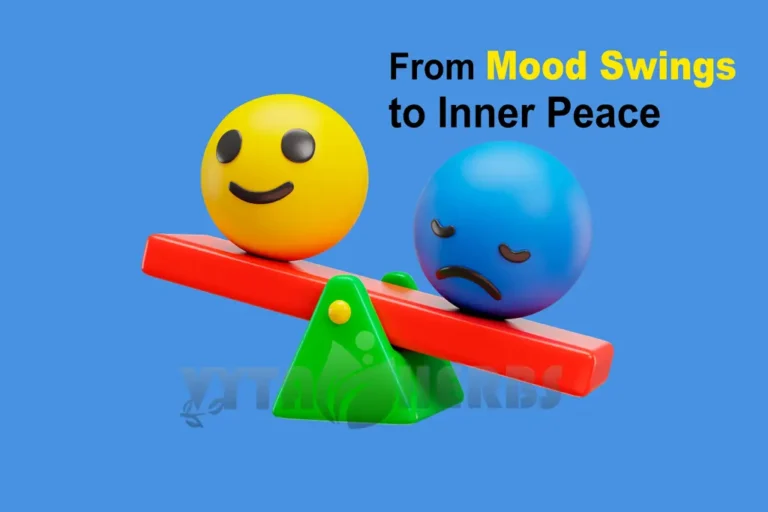In today’s fast-paced, hyper-connected world, mental health has become one of the most pressing health concerns globally. The rising prevalence of anxiety, depression, sleep disorders, stress-related ailments, and emotional imbalances is not just a modern-day crisis; it reflects a deeper disconnect between the body, mind, and soul. While modern medicine provides symptom-centric treatments, Ayurveda — India’s ancient science of life — offers a more integrative and holistic approach that treats the root cause of mental imbalance. Ayurveda views mental health not merely as the absence of disease, but as a state of inner balance, clarity, joy, and awareness.
Understanding the Ayurvedic View of Mental Health
In Ayurveda, the mind is governed by three fundamental energies or gunas: Sattva (clarity and harmony), Rajas (activity and restlessness), and Tamas (inertia and darkness). A mentally healthy person is sattvic by nature — calm, intelligent, compassionate, and aware. However, an excess of rajas and tamas can disturb this equilibrium, leading to mental agitation, confusion, fear, anger, or lethargy. Ayurveda also closely links mental health with the three doshas — Vata, Pitta, and Kapha, which govern bodily functions. For instance, excess Vata can lead to anxiety and insomnia, elevated Pitta may result in irritability and anger, while aggravated Kapha may manifest as depression or apathy.
Ayurveda emphasizes that mental well-being is a result of harmony between the body, mind, environment, and consciousness. Hence, it does not isolate mental health as a standalone issue, but treats it as an interconnected part of the entire being. This is why Ayurvedic treatments are not quick fixes but lifestyle-oriented paths to healing and renewal.
Benefits of Ayurveda for Mental Health
One of the most significant advantages of Ayurveda in mental health management is its customization and root-level treatment. Ayurvedic therapies work gradually but deeply, helping to detoxify the mind, calm the nervous system, and restore balance to emotional energies. Let’s explore the key benefits:
1. Natural Healing without Side Effects:
Ayurvedic herbs, oils, and practices are entirely plant-based and time-tested. Unlike allopathic medications which may come with dependency or side effects, Ayurvedic remedies nourish the nervous system, improve brain chemistry naturally, and support long-term emotional resilience.
2. Mind-Body Alignment:
Ayurveda teaches that the body and mind are one. Regular Ayurvedic routines like abhyanga (oil massage), pranayama (breathwork), meditation, and herbal support help restore the gut-brain connection, stabilize hormones, and improve neurochemical balance.
3. Stress Reduction and Nervous System Regulation:
Practices like Shirodhara (oil streaming on the forehead), nasya (nasal oil application), and certain calming herbs like Brahmi, Ashwagandha, Jatamansi, and Mandukaparni are powerful in reducing cortisol levels, soothing the nervous system, and encouraging restful sleep.
4. Emotional Detox and Clarity:
Many mental health problems stem from unprocessed emotions or trauma. Ayurveda helps purge emotional toxins (called “manas doshas”) through therapies like Panchakarma, which deeply cleanse not just the physical system but also the mind.
Powerful Ayurvedic Herbs for Mental Wellness
Brahmi (Bacopa Monnieri): Known as a brain tonic, Brahmi enhances memory, concentration, and learning capacity. It calms the mind and is particularly useful in managing anxiety and attention disorders.
Ashwagandha (Withania Somnifera): Often called the ‘Indian ginseng’, Ashwagandha is a powerful adaptogen that helps the body cope with stress. It stabilizes mood, boosts stamina, and reduces mental fatigue.
Jatamansi (Nardostachys Jatamansi): This herb has deep calming effects on the brain. It’s helpful in insomnia, panic attacks, and depressive disorders due to its grounding and tamas-reducing properties.
Shankhpushpi: A cooling and rejuvenating herb, it is excellent for nervous weakness, hyperactivity, and mental restlessness. It promotes better memory and sharpens intelligence.
Tagara (Valeriana Wallichii): Similar to Western Valerian, this is used to treat sleep issues and chronic anxiety. It helps reduce emotional overthinking and quietens the overactive mind.
Daily Ayurvedic Lifestyle Tips for Mental Peace
While herbs play a critical role, Ayurveda places immense importance on dinacharya (daily routine) and ritucharya (seasonal routine) to keep the mind steady. Rising early, ideally before sunrise (brahma muhurta), sets the tone for a peaceful day. This time is charged with sattvic energy and is ideal for meditation, yoga, and silence. Oil massage (abhyanga) with calming oils like sesame or brahmi oil before bathing can nourish the nerves and release stored tension.
A light, warm, and sattvic diet — free from stimulants, processed food, and excess caffeine — supports better digestion and a calm mind. Ayurveda stresses on eating with awareness, in silence, without distractions, as the mind digests what the body consumes. Sleeping early (before 10 pm) and avoiding screens before bed are essential to maintain the body’s natural circadian rhythm, which is deeply tied to mental clarity and mood stability.
How to Use Ayurvedic Remedies Safely
Ayurvedic herbs are most effective when used under the guidance of a trained Ayurvedic practitioner. Dosage, combinations, and timing are crucial and vary from person to person. For example, someone with Vata imbalance may need grounding herbs and warm oils, while a Pitta-dominant person may benefit more from cooling therapies and coconut oil massages. Avoid self-medication or online mixes that may not suit your body constitution (Prakriti).
Incorporating practices like yoga, mantra chanting, mindful breathing, journaling, and being in nature further amplifies the healing effect of Ayurveda. The goal is to not just treat an ailment but create a state of living where joy, balance, and peace are naturally sustained.
Conclusion: Reclaiming Mental Harmony Through Ayurveda
Mental health is not just a clinical issue to be solved with pills; it is a delicate balance of physical vitality, emotional fluidity, and spiritual connection. Ayurveda invites us to slow down, listen to our inner rhythms, and make choices that nourish rather than numb. It is not a one-pill cure, but a gentle, nurturing system that treats the entire individual — mind, body, and spirit.
By embracing Ayurvedic wisdom in our modern lives, we do not just heal from mental stress — we build a lifestyle that fosters long-term resilience, inner harmony, and self-awareness. For anyone struggling with anxiety, depression, or emotional instability, Ayurveda offers a time-tested path of renewal, reconnection, and true mental freedom.







